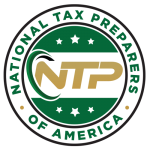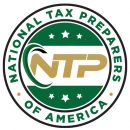While taxpayers file tax returns to the IRS during their working tenure, the IRS also provides facilities to form Individual Retirement Accounts (IRAs) and Roth IRAs.
A Roth IRA is an individual retirement account (IRA) that allows qualified withdrawals on a tax-free basis provided certain conditions are satisfied. Established in 1997, it was named after William Roth, a former Delaware Senator.
Roth IRAs are similar to traditional IRAs <www.investopedia.com/terms/t/traditionalira.asp>, but differ in how the two are taxed. Roth IRAs are funded with after-tax dollars, that is, the contributions are not tax-deductible. But once you start withdrawing funds, the money is tax-free. Conversely, traditional IRA deposits are generally made withpretaxdollars; you usually get a tax deduction on your contribution and pay income tax when you withdraw the money from the account during retirement.
This and other key differences make Roth IRAs a better choice than traditional IRAs for some retirement savers.
·Where do I open a Roth IRA?
A Roth IRA must be established with an institution that has received IRS approval to offer IRAs. These include banks, brokerage companies, federally insured credit unions, and savings and loan associations.
·When can I file a Roth IRA?
A Roth IRA can be established at any time. However, contributions for a tax year must be made by the IRA owner’s tax-filing deadline, which is generally April 15 of the following year. Tax-filing extensions do not apply.
·What are the requirements for a Roth IRA?
There are two basic documents that must be provided to the IRA owner when an IRA is established:
1.The IRA disclosure statement <www.investopedia.com/terms/d/disclosurestatement.asp>
2. The IRA adoption agreement and plan document <www.investopedia.com/terms/i/iradocument.asp>
These provide an explanation of the rules and regulations under which the Roth IRA must operate, and establish an agreement between the IRA owner and the IRA custodian/trustee.
·What will be my contributions to Roth IRA?
For 2021 and 2020 the total contributions you make each year to all of your traditional IRAs <www.irs.gov/retirement-plans/traditional-iras> and Roth IRAs <www.irs.gov/retirement-plans/roth-iras> can’t be more than:
* $6,000 ($7,000 if you’re age 50 or older), or * If less, your taxable compensation for the year
Contributions to *Roth IRAs* are not *deductible* the year you make them: they consist of after-*tax* money. That is why you don’t pay taxes on the funds when you withdraw them—your *tax* bill has already been paid. However, you may be eligible for a *tax* credit of 10% to 50% on the amount contributed to a *Roth IRA*.
Facilities like the Roth IRA help you invest for a safer, secure future post your retirement. This investment is hence an important term in your annual tax returns files. Professional services like National Tax Preparers of America (NTPA) ensure proper filing of your tax returns so that you receive full benefits of Roth IRA.




